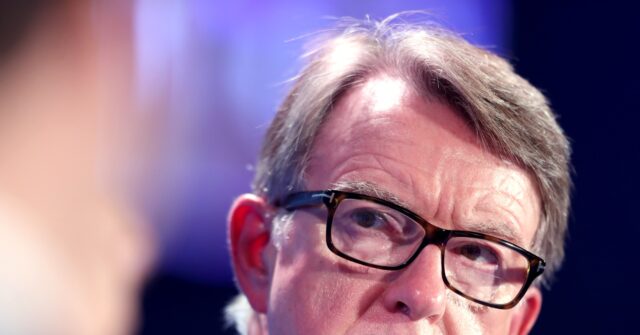The announcement of Lord Peter Mandelson as Britain’s new ambassador to Washington has elicited strong reactions, particularly from figures within the Trump campaign. A senior advisor labeled Mandelson a “moron” who should remain in the UK, a sign of the contentious atmosphere surrounding his appointment. Mandelson, a seasoned politician with a history of serving under Tony Blair and Gordon Brown, is set to take over from Dame Karen Pierce, whose term concludes in January. His experience was seen as critical to managing the complex “special relationship” between the UK and the US, especially amidst fears of potential tariffs under a Trump administration.
Mandelson’s ascension to the ambassadorship is complicated by his previous characterizations of Donald Trump. In a 2019 interview, he criticized Trump as “little short of a white nationalist and racist,” indicating a deep divide in perception between Mandelson and the incoming administration. Such comments have led to skepticism about his ability to foster a positive diplomatic relationship. Mandelson’s critical view of Trump reflects broader sentiments in Britain, where many politicians and citizens express concern over the former president’s views, suggesting that any approach to diplomacy must carefully navigate these tensions.
The Trump campaign’s reaction highlights the extent of the diplomatic challenges facing Mandelson. Chris LaCivita’s remark about replacing a “universally respected” ambassador with Mandelson underscores the necessity for the UK to manage relationships deftly under the new political landscape. This concern is echoed by the history of strains between Labour politicians and the Trump administration. Notably, Foreign Secretary David Lammy has also made disparaging remarks about Trump, labeling him a “tyrant in a toupee” and a “racist KKK and Nazi sympathizer.” These past comments raise questions about how personal beliefs may influence official diplomatic interactions moving forward.
In addition to prior remarks, there are allegations threatening the Labour government’s standing with the Trump team. The Trump campaign filed a complaint accusing Labour of making illegal foreign contributions during the 2020 election cycle, further complicating the diplomatic atmosphere. Despite these accusations, there remains hope within the UK that the new government could still secure favorable terms with Trump, particularly regarding tariffs. However, the current government’s attempts to strengthen ties with the EU could hinder these efforts if they are perceived as distancing themselves from Trump and his policies.
Despite his controversial past remarks, there are indications that Mandelson may seek to revise his approach to Trump and the US. He has suggested leveraging relationships with figures such as Nigel Farage and Elon Musk to open dialogues with the incoming administration. This pivot illustrates a pragmatic approach, acknowledging the necessity for a collaborative stance despite past criticisms. In doing so, Mandelson may aim for a more constructive engagement with the Trump administration, focusing on shared interests and mutual benefits.
The political landscape in both the UK and the US remains charged, and Mandelson’s role as ambassador could prove pivotal in navigating the shifting dynamics. The prospect of establishing a profitable relationship while managing historical tensions will require astuteness and adaptability from Mandelson. His ability to transcend previous animosities and negotiate effectively could shape the UK’s diplomatic posture in the Trump era, underscoring the importance of diplomacy in global politics. As the situation evolves, all eyes will be on how Mandelson addresses these challenges and whether he can forge a path forward in enhancing the US-UK alliance.

